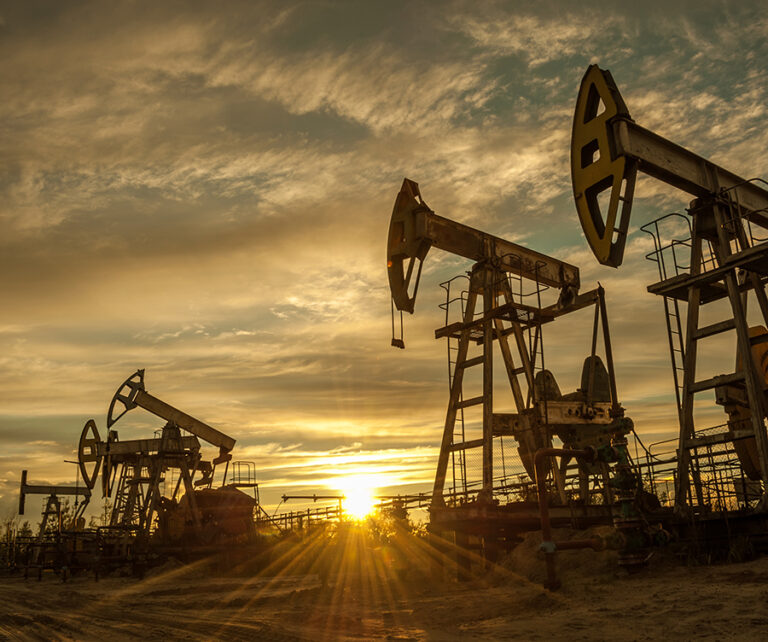Export credit agencies (ECAs) in the world’s largest economies are still pumping billions of dollars more annually into fossil fuels than clean energy projects, fresh data shows, spurring calls for reform within the OECD Arrangement.
ECAs in the G20 group of nations provided US$96bn towards fossil fuel projects between 2020 and 2022, finds a report published this week by campaign groups Oil Change International and Friends of the Earth.
The US$32bn per year supplied by these institutions represents a 20% drop compared to the US$40.1bn yearly average from 2018 and 2020, figures show, highlighting efforts to reduce fossil fuel exposures.
Yet the volume of ECA financing directed towards fossil fuels is still six times larger than that allocated to clean energy, which averaged US$5bn annually during this same period.
The report claims a “handful of countries” are “blocking” energy transition efforts by using public finance institutions such as ECAs in aid of fossil fuels, instead of renewable energy. Often, deal-making activity occurs in developing countries such as Mozambique, Papua New Guinea and Uzbekistan.
The report broadly covers the activities of ECAs and development finance institutions in the G20, as well as multilateral lenders including the World Bank and the European Bank for Reconstruction and Development.
Canada, Japan and Korea were the top three public financiers of fossil fuels from 2020 to 2022, together supplying nearly US$28bn to heavy-emitting industries – largely through their state ECAs.
Canada approved US$10.9bn in fossil fuel financing, a “high total” driven by the “unusually broad mandate” of its ECA, Export Development Canada (EDC), which allows for domestic financing of oil and gas.
While the NGOs say ECAs were the “worst international public actors” and accounted for roughly two-thirds of the US$142bn public fossil financing in the three-year period, DFIs and MDBs also contributed tens of billions towards fossil fuel development in this period, figures show.
Out of the nine MDBs analysed in the report, the World Bank Group approved the most direct finance for fossil fuels – US$1.2bn a year on average, over two-thirds of which backed gas development.
Such findings are a concern, the report says, as public finance has an “outsized influence” in shaping which energy projects get built, due to its provision of “preferential” market rates for loans, grants, equity purchases and guarantees to borrowers.
Without an affordable debt package, backers of a large-scale energy project may ultimately opt against its development.
Public finance institutions channelled almost US$35bn per year towards clean energy between 2020 and 2022 – up from US$29bn in the previous three-year period.
Broken promises?
In recent years, the European Union and several G20 governments, have pushed for public finance institutions, including ECAs, to cease providing insurance and financing for fossil fuels.
Last month, the EU tabled a proposal at a meeting of the OECD Arrangement on Officially Supported Exports Credits that would effectively ban participants – which includes agencies in the EU, US, Japan, Korea, Australia, Canada and the UK – from supporting oil and gas value chains.
Members of the OECD Arrangement, a longstanding gentlemen’s agreement that guides the terms and financing conditions participating ECAs can offer, are set to discuss the motion in the coming months, and the EU is hoping for an agreement to be reached this year.
Should a deal be struck, it would extend a previous ban on coal-fired power projects, agreed in 2021. Yet experts suggest the US, Japan and Korea may well oppose an outright prohibition on ECA oil and gas financing.
In their report, Oil Change International and Friends of the Earth highlight the significant impact of the OECD Arrangement’s decision to stop coal financing on the export credit market’s fossil fuel activities.
Public financing for coal dropped from an annual average of US$10bn between 2017 and 2019 to US$2bn in the three years leading up to 2022, the report says.
“This decrease can be attributed to coal exclusion policies that came into effect in 2021, including China’s coal power policy and the Organisation for Economic Cooperation and Development (OECD) ECA coal agreement.”
“Now these institutions must do the same and follow through on commitments to end their oil and gas finance,” it adds.
Yet fossil fuel phase-out policies remain incredibly varied across the export credit community.
UK Export Finance, Canada’s EDC and French agency Bpifrance have published policies that effectively ban any future oil and gas financing, while several non-G20 agencies have adopted restrictions, including Finland, Sweden, New Zealand and Denmark.
The US, Italy and Germany were all signatories of the Climate Energy Transition Partnership, a landmark agreement at the Cop26 summit. As part of this pact, countries agreed to stop financing fossil fuels by the end of 2022.
Yet the US approved US$2.3bn in fossil fuel financing from 2020 to 2022, figures show, and in recent months, saw two advisors quit its ECA’s climate committee over a guarantee for a Bahrain oil and gas field expansion.
Italy and Germany have published phase-out policies, yet these have “big loopholes” that allow ongoing support, the report says.
Japan is also failing to live up to commitments made at a G7 summit in 2022 and is still backing oil and gas deals, activists say.
“Despite its G7 commitment to end fossil fuel financing, its public financial institutions like the Japan Bank for International Cooperation continue to support new fossil fuel projects, including the Scarborough gas field in Australia and gas power plants in Mexico,” says Makiko Arima, senior finance campaigner at Oil Change International.
According to the report’s authors, the high volumes of ECA financing for fossil fuels are “unlikely to change without policy reform at both the OECD [Arrangement] and national level”.
“Currently, ECAs have strong ties to the fossil fuel industry and have shown little initiative to shift financing away from oil and gas,” they say.






